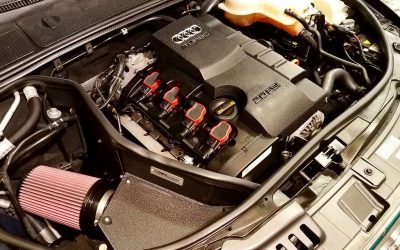Your Ultimate 10-Point Checklist for a Smooth Summer Road Trip
Preparing your car for the annual summer drive isn’t hard, but it is important and here’s why
Making sure your car’s up to speed for this year’s summer road trip
Whether you’re planning a stay-home vacation or heading to the continent, millions of British families will be embarking on a summer road trip over the next few weeks.
If you’re planning a coastal cruise or gearing up for a journey across the channel, a well-prepared car is your ticket to hassle-free adventure. So before you set the GPS coordinates and hit the open road, make sure you’ve ticked off these essential points from the TLC summer road trip checklist:
1. Fluids Check:
Before you set off, ensure that your engine oil, coolant, brake fluid and washer fluid are at their recommended levels. It’s crucial to keep the engine cool, oil topped up and your brakes responsive during long drives, especially if you’re heading to the Med, where temperatures are considerably higher than back home.
2. Tyre TLC:
Inspect your tyres for proper inflation, tread depth and any obvious signs of wear or damage. Remember, your tyres are the only part of your vehicle that are in touch with the ground – properly inflated they not only enhance fuel efficiency but also contribute to a safer journey.
3. Brake Check:
Get your brakes thoroughly checked by a professional mechanic. Long road trips demand reliable stopping power, so it’s really important that your brake pads and discs are in optimal condition.
4. Lights and Signals:
Test all your vehicle’s lights, including headlights, indicators, brake lights and fog lights. More than ever, if you’re in new territory, clear visibility and proper communication with other drivers are vital for a successful road trip.
5. Battery Health:
A healthy battery is key to avoiding unexpected breakdowns, especially if your car has been working hard for many hours. Check for corrosion on the terminals and make sure the battery is securely in place.
6. Air Conditioning:
If you have it, ensure your air conditioning system is functioning efficiently. Long journeys can get uncomfortable without a cool breeze to keep you refreshed, especially in warmer climates.
7. Wipers and Windscreen:
Inspect your wipers for wear and tear and replace them if needed. Many parts of Europe are prone to heavy summer storms where a clean windscreen and effective wipers will be essential for maintaining clear visibility.
8. Emergency Kit:
Pack an emergency kit with essentials like a first aid box, water, snacks, basic tools and a reflective vest (compulsory in many European countries). Here’s a handy tip; don’t forget to include a physical map in case your GPS signal drops out.
9. Documentation:
Ensure your driving licence, vehicle registration, insurance and any necessary travel documents are up to date and easily accessible.
10. Load Distribution:
If you’re planning to take a lot of luggage, ensure even weight distribution across your car to maintain stability and handling.
Finally, be sure to research and plan your route, including scenic stops and cultural attractions along the way. Keep in mind that driving customs, road signs and local regulations may be different to the UK.
FAQs:
Q: Should I use special oil for a longer trip?
No, we recommended using the engine oil grade specified in your vehicle’s manual. Feel free to give us a call at TLC if you’re not sure.
Q: Do I need a European driving permit?
If you’re driving in the EU, you may need an International Driving Permit (IDP). Check online before you leave just in case.
Q: Are there speed limits in Europe?
Yes, speed limits vary across different countries, but just like the UK they should be clearly displayed at the side of the road.
Q: Can I use my mobile phone while driving in Europe?
No! Many European countries have strict laws regarding mobile phone use while driving. Like the UK, our advice is to use a hands-free device or pull over if you need to make a call.
Q: Do I need additional insurance for driving abroad?
Check with your insurance provider to ensure you have adequate coverage for driving abroad. You might need additional coverage for specific countries.
Q: How often should I take breaks during the journey?
It’s advisable to take a break every two hours to rest, stretch, and stay alert. Plan your route with rest stops in mind.
As you gear up for your summer road trip this year, remember that you don’t need to do everything yourself. If you have any questions or need further assistance in preparing your car for the journey, TLC is just a call away.
We’re here to help you with everything from a quick oil check to a full service, our team is on hand to ensure your road trip is as smooth as an autobahn.
If you need any help planning for this summer’s big drive, feel free to give TLC Autocentres a call on 01256 350 350.
Safe travels!
Here are some more blog posts you might like
Why is an Engine Cooling System important?
Why is an Engine Cooling System important? Type of Car Engine Cooling System There are two types of cooling systems; liquid cooling and air cooling. Most auto engines are cooled by the liquid type; air cooling is used more frequently for aircraft,...

